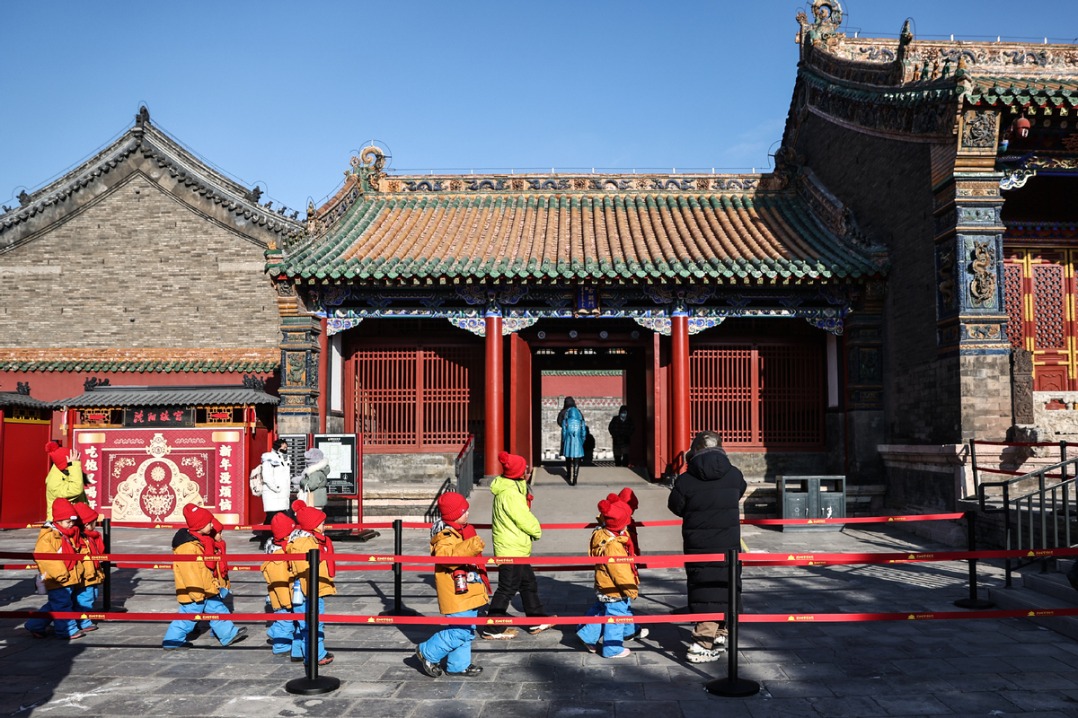Why Chinese economy can navigate global headwinds


Assuming that the measures US President Donald Trump has taken in the first few weeks in office reflect, a new and sustainable path for the United States, instead of whims, will they have an impact on China's economic prospects?
Before addressing this question, we should analyze the structural strengths of China, "structural" in this case being those strengths that do not depend on external factors. There are at least six such structural factors in China's favor.
First, the large size of China's domestic market guarantees low average production costs and, therefore, relatively low prices of its high-tech and heavy industrial goods and economies of scale. Hence, whether or not China has access to external markets, its enterprises can produce at competitive prices even in the most complex and large-scale sectors.
Second, according to World Bank, the savings-to-GDP ratio of China (over 44 percent) is much higher than those in most Western economies (about 18 percent in the US) and the world average (27 percent). This creates for China a large margin to increase consumption without endangering macroeconomic stability. In the face of trade conflicts, this might help mitigate the impact of declining exports on China's GDP.
Third, China has invested in high-quality education, which has helped create a very productive and adaptable labor force. An educated population can better comprehend budget constraints, the value of forfeiting short-term aspirations for long-term national strategic objectives, and the broad set of contesting factors that ought to be contemplated when drawing development policies, all of which feeds into high levels of social cohesion, a critical factor in determining the investment ratio and GDP growth.
Fourth, since ancient times China has cultivated an appetite for knowledge and technological solutions to production problems. China invented gunpowder, mechanical clocks, the compass, printing and paper, among other things. After the launch of reform and opening-up in 1978, substantive budget allocations for research and development have strengthened the quest for science, enabling the country to compete with the West in several cutting-edge fields.
Fifth, in terms of sustaining economic growth, China's political system has strengths that are not found in Western economies. The Chinese leadership is pragmatic when choosing and implementing economic policies. For instance, "what matters is that the cat catches mice, no matter black or white". Therefore, the leadership can and is willing to pick from a whole array of fiscal and monetary tools and use them to achieve its goals. Besides, China's political system warrants not only social stability but also the continuity of the objectives, strategies and policies, all of which encourage private capital to invest and take risks in long-term ventures.
Finally, starting in 1840 through 1945, China endured attacks and invasions by Western powers and some neighbors. These more than 100 years of aggression, known in Chinese narrative as "the century of humiliation", are very much instilled into the Chinese psyche, affording a need for unity, self-protection and national strength, which call for hard work, sacrifice, entrepreneurship and social cohesion. This not only facilitates the work of the Communist Party of China, which played a key role in bringing to an end that "humiliation", but has also positively contributed to the competitiveness of the economy.
The West might choose to intensify its animosity toward China, ignited chiefly by economic fears, with tariff wars aimed at halting its progress, thus ignoring that China's structural-historical factors ensure the country's progress with its own dynamics and self-sustainability. True, some sources estimate China exports-GDP ratio amounts to nearly 18 percent. But if tariffs reduced its exports to 14.4 percent of GDP, though a very unlikely event, domestic consumption can easily offset it by a corresponding reduction in the savings-GDP ratio of 3.6 percentage points, bringing the savings-GDP ratio to about 41 percent, still much higher than the West's average savings rate. In such a scenario, the impact of tariffs on China's GDP would be minimal, if any, while consumption and the quality of life in China would improve.
Moreover, the new US administration's measures have, unintentionally, become a key factor in strengthening "team China". The US administration seems to have embarked on a crusade to make enemies out of friends and friends out of countries deeply discredited before the US' Western allies. Cuts in the budget of the US Agency for International Development (USAID) might prove right those who consider American capitalism highly predatory and might cause havoc in many countries and groups of people that benefited from US aid.
The revival of the outdated 19th Century' Monroe Doctrine ("America for the Americans") and the Manifest Destiny (right of the US to expand its territory) is hurting relations with countries like Denmark, Palestine, some Arab nations, Canada and Panama, and is seen as a warning by the rest of the world. The US administration's mercantilist-protectionist trade practices and threats against US friends and foes alike, stand in the way of legally binding multilateral rules and bilateral trade treaties, which were promoted, if not imposed, for decades by the very United States itself.
The US linking of tariff threats and sanctions to the US' geopolitical rivalry with China contradicts one of the core propagandistic arguments when, for instance, the Central America, Dominican Republic Free Trade Agreement was being promoted.
More than just raising eyebrows, the US administration may have forced many people across the world to have second thoughts about the sincerity and real intentions of the administration and to wonder if it is not better to strengthen relations with a trade eager "no-strings-attached" China, away from a mercantilist end-justifies-any-means US.
Therefore, quite beyond the structural positive factors mentioned above, the US administration's announcements and decisions might have improved the prospects for the Chinese economy and its overall standing in the world.
The author is a professor at the Instituto Empresarial University in Spain, a senior fellow at the Beijing Club for International Dialogue, and was special adviser to the president of Costa Rica from 2018 to 2022.The views don't necessarily reflect those of China Daily.
If you have a specific expertise, or would like to share your thought about our stories, then send us your writings at opinion@chinadaily.com.cn, and comment@chinadaily.com.cn.
































